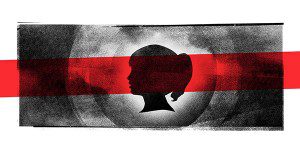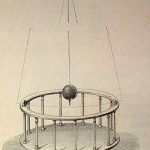
My first memory is of flushing my father’s drugs down the toilet. I was 3, and he and my mother were fighting. Again. About his drug use. Again. My mother found some stash or other, and sent me to flush them. I did.
By the time I was 5, my parents had already separated and reunited several times and were finally separated for good. I had been in a major car accident–my father was driving, high. I was a confused little girl. I loved my father. I remember him playing games with me and making grilled cheese sandwiches while my mother was at work. I don’t remember him yelling at me or being abusive in any way. I vividly recall walking in a grassy field near our apartment complex and him telling me to never, ever use drugs. Pleading with me to not be like him. As with most addicts, he was two different people depending on whether he was clean or using. It’s hard enough for adults to understand, so much harder for children.
After my maternal grandparents took me in, I only saw my father periodically. I remember the day of my first Holy Communion was ruined when he showed up high for the Mass. His mother and father, my Catholic grandparents, who had come so far to share the day with me, were devastated, and it was a long time before I saw them again. He would arrive for a visit, stay a few hours, and leave to try and manipulate some local doctors into giving him drugs. Sometimes he came back. More than once, I sat at the window for hours, waiting for my father, who would not come back.
By the time I entered high school, he was gone for good. The last time I spoke with him was around my 12th birthday. He was high. I was old enough to tell him that if he couldn’t call me sober, he shouldn’t call me at all. He didn’t. So, I spent at least the next ten years believing that I was worthless.
My father chose drugs over me.
The shame runs so deep that even as I type this more than 15 years later, I’m trying to decide if I should publish it. What if you realize what a terrible child I must have been, for my own father to leave me?
See what shame can do? I struggled mightily to believe that God gave a shit about me. How could he? How could God allow such suffering in the life of a child? This question still sometimes haunts the periphery of my life, whispering lies in the dark.
In this Sunday’s Gospel, Jesus says that the good seed and bad will be scattered together, will grow up together, and only be separated at the end of this life. Could it be because it’s not as simple as good people and bad? But something more mysterious, that goodness and brokenness and even evil live side by side not only in the world, but in our hearts?
I knew as an adult that I had to make peace with my father. I had to find a way to let him go, yet I clung to my anger like a life preserver. Until I met Marietta.
When I was in college, I heard a woman speak about forgiveness. Her young daughter had been kidnapped and murdered, and she had forgiven the man who did it and even opposed his execution. She had leaned in to her God and fought self-destruction by hate. She forgave him. Surely, if she could forgive so much and find peace, then I could too?
So, I did what she said. I asked God to help me forgive him. This split my heart wide open. I did not want to forgive my father, because I equated forgiveness with permission.
Forgiveness is not permission. We don’t forgive people who have wounded us deeply because we get to a point where we are “okay” with their words or actions. I will never be “okay” with the way my father abandoned me. But I have forgiven him, in the sense that he no longer holds power over my heart. It took a woman forgiving her child’s murderer for me to forgive my father.
I still feel pain when I think of that little girl who believed she was worthless, and that’s why her father left. I want to reach back through the years and hold her close, whisper how beautiful, worthy, and loving she is. How it is his tragedy more than hers. How in time she will see him with eyes of pity, see the demons who haunted him and all the beautiful things he sacrificed for his god.
Today, I look at the woman I have become, who grace and love have made me, and I feel sad my father doesn’t know me. I am someone worth knowing. My husband and children are people worth knowing and loving. He has missed all this, and perhaps that is punishment enough.
The moment forgiveness becomes possible is when we can hold in tension these truths: what happened to me is unacceptable, but I am so much more than acceptable. The pain that others inflict upon us does not define our dignity or worthiness of giving and receiving love.
We are more than the worst thing that has happened to us.
Sarah Babbs is a writer, mother, fertility counselor, social justice advocate and frequent contributor to Sick Pilgrim. She blogs at Fumbling Toward Grace.












